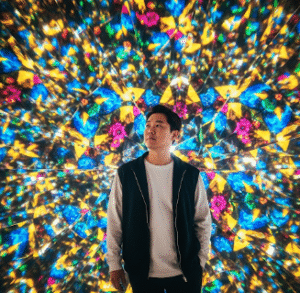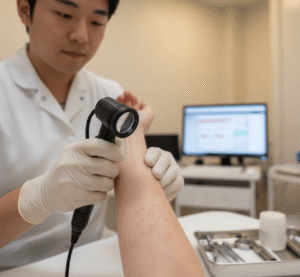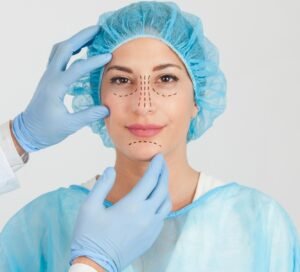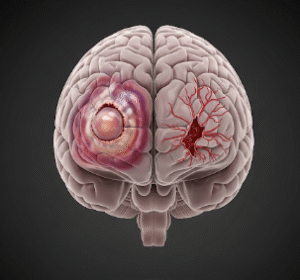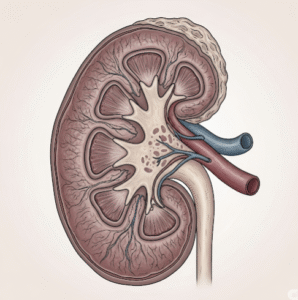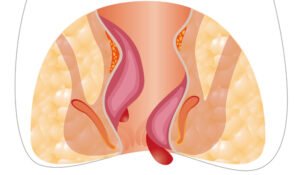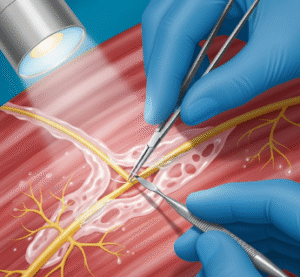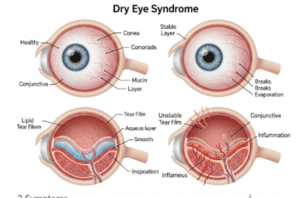Overview
Uric Acid Stones are a type of kidney stone formed from an excess of uric acid in the urine. They are one of several types of urinary calculi and are commonly associated with dehydration, high-purine diets, and conditions like gout. These stones can cause severe pain, urinary obstruction, and infections. Prompt diagnosis and treatment are crucial to prevent complications and recurrence.
What is Uric Acid Stones
Uric Acid Stones are crystalline formations that develop in the urinary tract when uric acid levels in the urine become excessively high, causing the acid to precipitate and form stones. Uric acid is a waste product created from the breakdown of purines—substances found in high-protein foods like meat and seafood. These stones are typically smooth, reddish-brown, and radiolucent (not visible on standard X-rays), and they can form in the kidneys, ureters, or bladder.
Symptoms
- Severe flank or lower abdominal pain (renal colic)
- Blood in the urine (hematuria)
- Frequent urge to urinate
- Burning sensation during urination
- Cloudy or foul-smelling urine
- Nausea and vomiting
- Fever and chills (if infection is present)
- Interrupted or slow urine stream (if stone blocks flow)
Causes
Uric acid stones form when the urine becomes too acidic, which reduces uric acid solubility and promotes crystal formation. Key causes include:
- Dehydration or low urine output
- High-purine diet (e.g., red meat, organ meats, shellfish)
- Gout or high blood levels of uric acid
- Diabetes and metabolic syndrome
- Obesity
- Chronic diarrhea or conditions causing fluid loss
- Genetic predisposition to low urinary pH
Risk Factors
- Male gender (men are more commonly affected)
- Age 30–60 years
- Gout or hyperuricemia
- Low urine volume
- High intake of animal proteins and alcohol
- Sedentary lifestyle
- History of kidney stones
- Acidic urinary pH (<5.5)
- Family history of stone disease
Complications
- Urinary tract obstruction
- Hydronephrosis (swelling of the kidney)
- Recurrent urinary tract infections (UTIs)
- Chronic kidney disease (CKD) if left untreated
- Ureteral strictures or scarring
- Hematuria
- Impaired kidney function due to repeated stone formation
Prevention
Prevention of uric acid stones focuses on hydration, dietary modifications, and urine alkalinization:
- Drink plenty of fluids (2.5–3 liters/day) to dilute urine
- Limit high-purine foods (red meat, sardines, liver, shellfish)
- Increase intake of fruits and vegetables to raise urine pH
- Avoid sugary drinks and alcohol
- Maintain a healthy weight
- Use of potassium citrate or sodium bicarbonate to alkalinize urine (under medical supervision)
- Regular monitoring of urine pH and uric acid levels
Treatment Options in Korea
South Korea provides world-class care for patients with uric acid stones, using advanced diagnostics, medical therapy, and surgical intervention when necessary:
- Diagnosis:
- Non-contrast CT scan (preferred imaging as uric acid stones are radiolucent on X-rays)
- Urinalysis and 24-hour urine collection to assess acidity and uric acid levels
- Blood tests to evaluate uric acid and kidney function
- Medical management:
- Increased hydration to promote urine flow
- Alkalinization of urine using potassium citrate or sodium bicarbonate
- Allopurinol or febuxostat to lower uric acid production (in cases of gout or hyperuricemia)
- Minimally invasive procedures:
- Extracorporeal Shock Wave Lithotripsy (ESWL) for smaller stones
- Ureteroscopy (URS) with laser lithotripsy for stones in the ureter
- Percutaneous Nephrolithotomy (PCNL) for large or complex kidney stones
- Post-treatment follow-up:
- Routine imaging to check for recurrence
- Long-term lifestyle and dietary counseling
Korean medical centers combine cutting-edge urologic techniques with preventive care strategies to ensure optimal outcomes and low recurrence rates for patients with uric acid stones.



